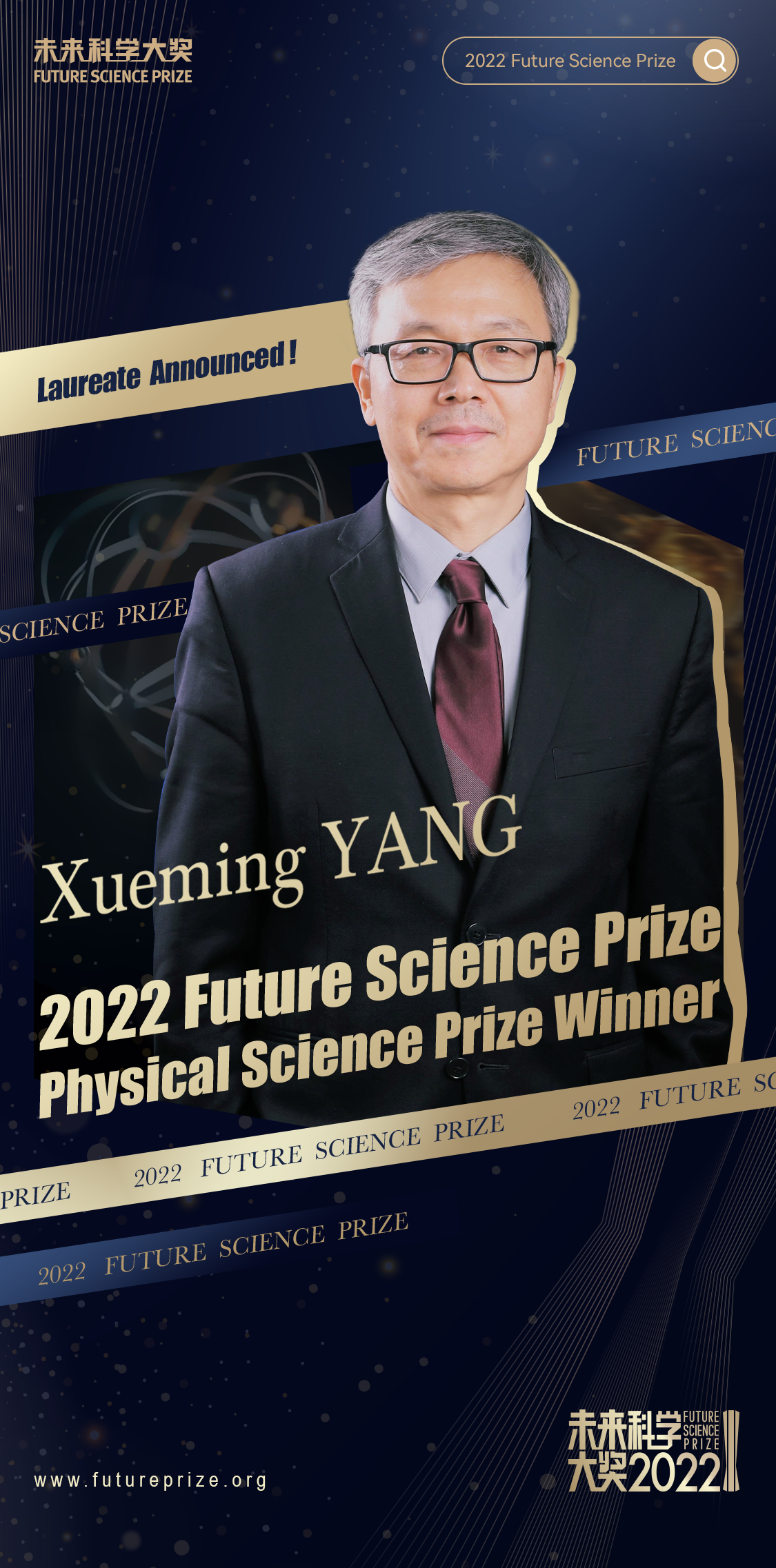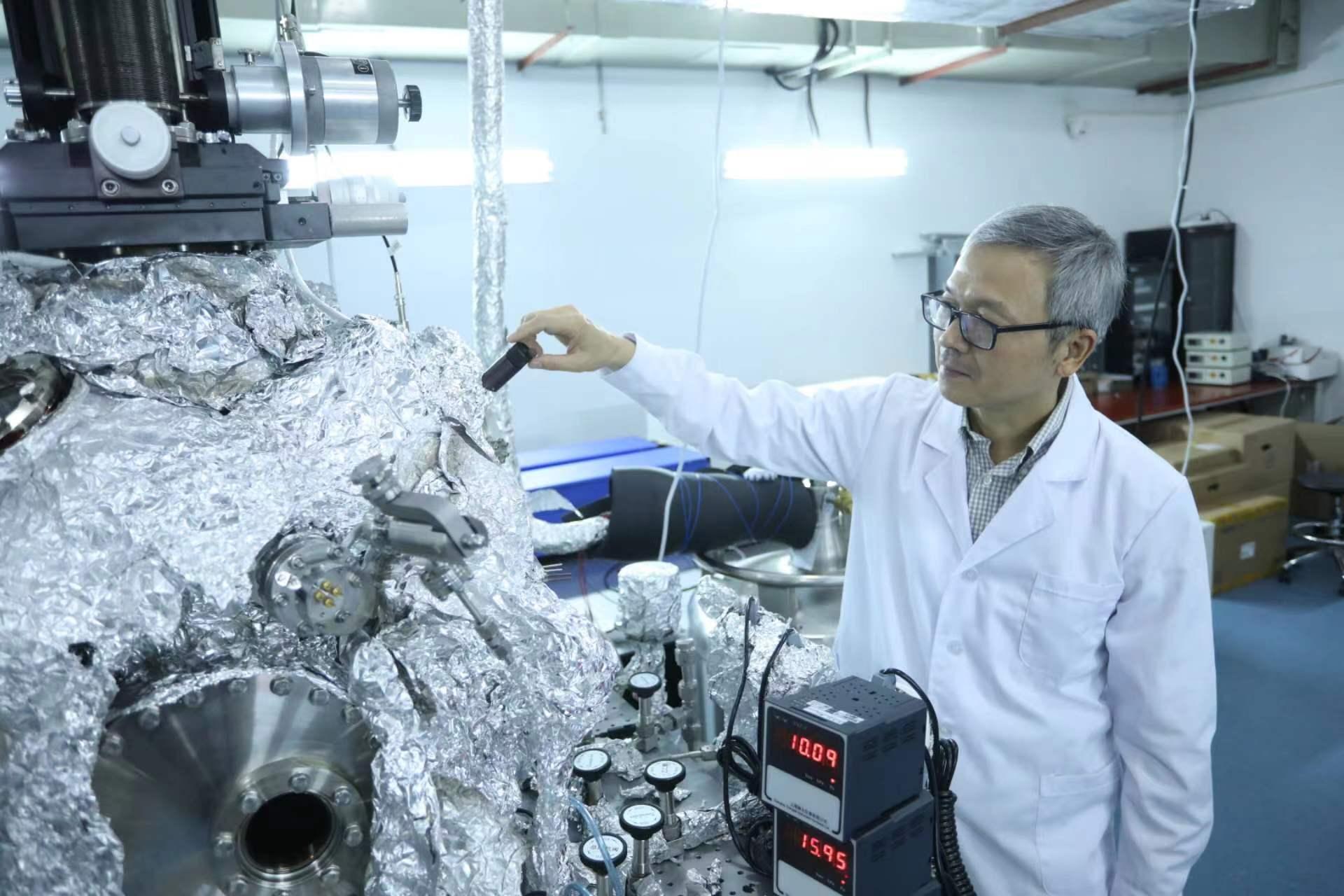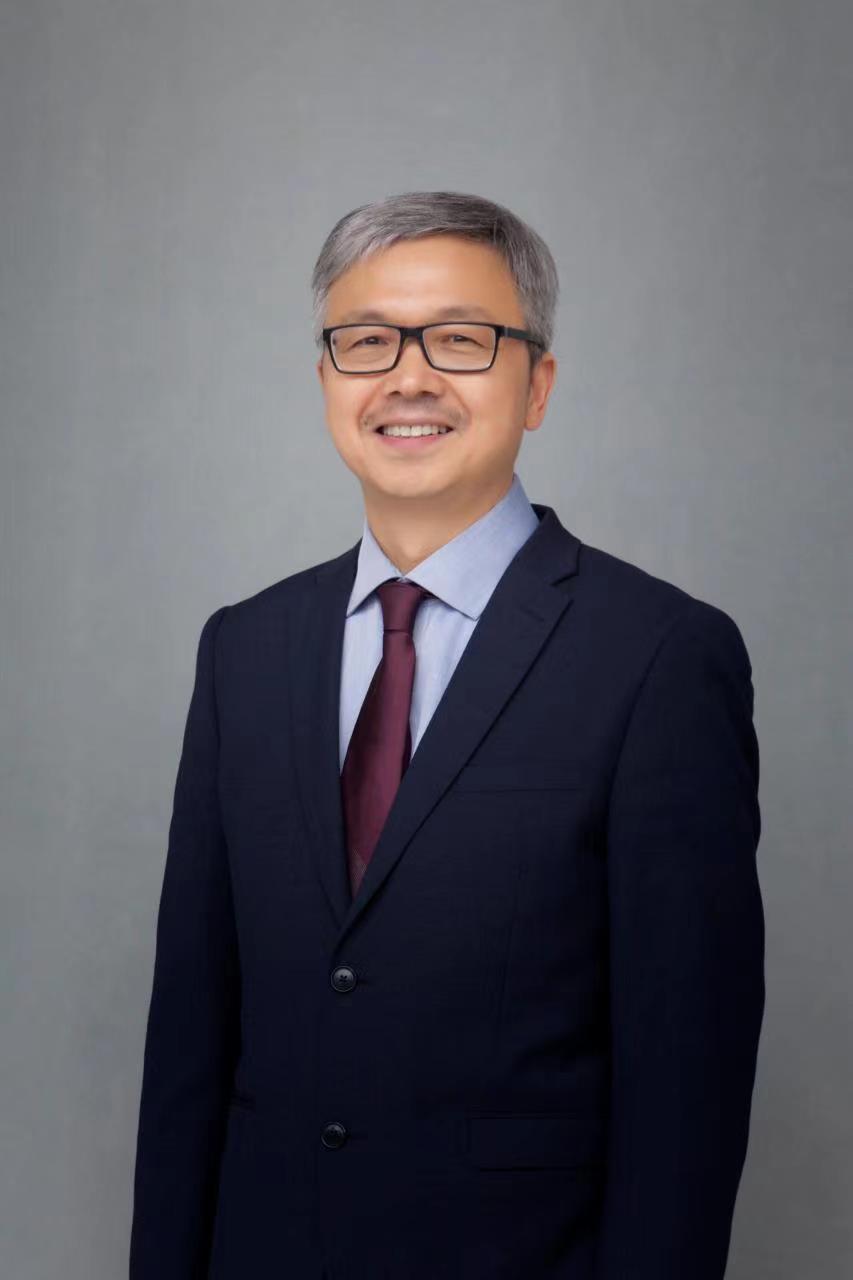On August 21, the list of winners of the 2022 Future Science Prize was officially announced.
Professor Xueming YANG, Acting Vice President of the Southern University of Science and Technology (SUSTech) and Academician of the Chinese Academy of Sciences (CAS), won the Future Science Prize in physical sciences.
He received the accolade for developing new-generation molecular beam techniques with high resolution and sensitivity for state-resolved reaction dynamics studies, revealing quantum resonances and geometric phase effects in chemical reactions.
The other two winners of the 2022 Future Science Prize were Wenhui LI, a professor at Tsinghua University, receiving the Future Science Prize in life sciences, and Ngaiming Mok, a professor at the University of Hong Kong, receiving the Future Science Prize in mathematics and computer science.

Since Eyring and Polanyi seminal work on the transition state theory (TST) in chemical reactions in the 1930s, the research of chemical dynamics has achieved many milestones, which were recognized by several Nobel Prizes.

Prof. Xueming YANG developed new-generation molecular beam instruments with high resolution and sensitivity. He achieved breakthroughs results in reaction resonance states, geometric phase effects, and quantum interference in chemical reactions.
With the development of quantum state-specific backward scattering spectroscopy, he revealed signatures of reaction resonance in a series of chemical reactions.
Additionally, he developed high-resolution crossed-beam reaction imaging techniques and observed the geometric phase effect and quantum interference between spin-orbit split partial wave resonances in a chemical reaction for the first time.
Prof. YANG’s scientific research and his new-generation molecular beam instruments have provided powerful tools for unveiling the quantum nature of chemical reaction dynamics. His new discoveries have expanded the field of reaction dynamics to unprecedented depth and breadth.

Academician Xueming YANG is a world-renowned expert in physical chemistry, and is mainly engaged in the study of gas phase and surface chemical dynamics. He has solved some long-standing scientific problems in the field of chemical kinetics and made important contributions to the study of transition state dynamics and non-adiabatic kinetics.
He has published more than 450 papers, including sixteen in Science and one in Nature. His research results were selected as China’s Top Ten News on Scientific and Technological Progress for two consecutive years in 2006 and 2007, and his experimental proof of quantum interference in chemical reactions was named China’s top 10 scientific advances of 2020.
He presided over the successful development of China’s first free electron laser user facility, the only free electron laser user facility operating in the VUV region in the world.
Prof. YANG is currently the Director of the Division of Chemical Science at the National Natural Science Foundation of China (NSFC), Vice President of the Chinese Chemical Society (CCS), Editor-in-Chief of the Chinese Journal of Chemical Physics (CJCP), and Deputy Editor-in-Chief of the Journal of Chemical Physics and CCS Chemistry, respectively.
Established in 2016, the Future Science Prize is a science award initiated by a group of scientists and entrepreneurs. It aims to reward scientists who have made outstanding scientific achievements in Chinese mainland, Hong Kong and Macao SAR, and Taiwan province, encouraging the promotion of basic science research in China and the development of science.
The nomination and selection process was established in accordance with the Nobel Prize, Turing Award, and other internationally renowned awards. The Future Science Prize consists of three categories: Life Science Prize, Physical Science Prize, and Mathematics and Computer Science Prize.
The Future Science Prize has been awarded to 27 laureates since 2016. All laureates are highly accomplished, widely recognized scientists whose research has made extraordinary impacts in life sciences, physical sciences, chemistry, mathematics, and computer science.
Other academicians at SUSTech who have previously received the prize include President Qikun XUE, the first winner of the Physical Science Prize in 2016, and Chair Professor of the Department of Chemistry Dawei MA, who also received the Physical Science Prize in 2018.
The 2022 Future Science Prize Week will be held in November. The one-week symposium, jointly held with well-renowned universities, will include academic reports of the winners, a summit to share cutting-edge scientific achievements, and the award presentation ceremony.
Proofread ByAdrian Cremin, Yingying XIA
Photo By